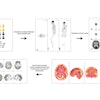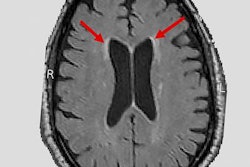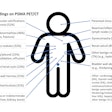
Older adults who have trouble managing their finances also had elevated beta-amyloid levels on florbetapir-PET scans, according to a study from Duke University published online in the Journal of Prevention of Alzheimer's Disease.
The researchers analyzed results from 243 adults: 144 with normal cognition, 79 with mild cognitive impairment, and 20 with mild Alzheimer's disease (range, 55-90 years) who are participating in the longitudinal Alzheimer's Disease Neuroimaging Initiative (ADNI). Along with measurements of amyloid-beta plaque buildup, which is associated with the onset of dementia, the subjects underwent a test known as the Financial Capacity Instrument Short Form (FCI-SF) to gauge their monetary calculation skills and financial acumen.
FCI-SF total scores were significantly worse in adults with mild cognitive impairment and dementia, compared with normal controls. In addition, more extensive deposition of amyloid-beta plaque on PET scans correlated with a person's inability to comprehend and apply basic financial concepts or to complete tasks such as calculating an account balance.
The researchers also found that normal controls took significantly less time to complete the money tests, compared with subjects with mild cognitive impairment and dementia. Specific financial skills also declined with age and at the earliest stages of mild memory impairment. The decrease in abilities was similar in men and women.
 Florbetapir-PET scans show the brain of a cognitively healthy 74-year-old (top row) who demonstrated average financial skills, compared with an 86-year-old with mild Alzheimer's disease (bottom row) who demonstrated impaired financial skills. The bottom scan is positive for amyloid plaques, highlighted in yellow and orange throughout the brain and extending to its edges. Images courtesy of Duke Health.
Florbetapir-PET scans show the brain of a cognitively healthy 74-year-old (top row) who demonstrated average financial skills, compared with an 86-year-old with mild Alzheimer's disease (bottom row) who demonstrated impaired financial skills. The bottom scan is positive for amyloid plaques, highlighted in yellow and orange throughout the brain and extending to its edges. Images courtesy of Duke Health."There has been a misperception that financial difficulty may occur only in the late stages of dementia, but this can happen early and the changes can be subtle," said senior author Dr. P. Murali Doraiswamy, professor of psychiatry and geriatrics at Duke University, in a statement. "The more we can understand adults' financial decision-making capacity and how that may change with aging, the better we can inform society about those issues."




















